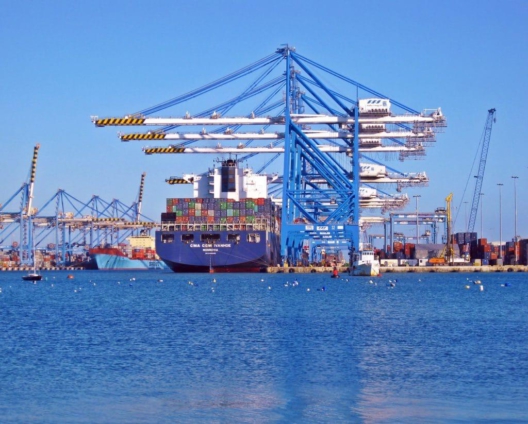The Association of Ghana Industries (AGI) has urged the government to remain unwavering in its decision to implement the reversal of the benchmark value discount policy.
It argued that maintaining the policy at its current form would lead to the collapse of local industries and job losses.
Dr Humphrey Ayim-Darke, the President of AGI, who was addressing journalists in Accra on Monday, stressed that maintaining the benchmark discount policy would not support the country’s industrial transformation agenda initiatives such as 1D1F , Planting for Food and Jobs, fertilizer subsidy and the export development agenda.
The benchmark value discount policy was introduced by the Government in 2019 in accordance with the World Customs Organisation policy of regular review of valuation database.
Under the policy, certain commodities were benchmarked to the prevailing world prices as a risk management tool to reflect the true market dynamics of the affected commodities.
Mr Ken Ofori-Atta, the Minister of Finance, announced the reversal of the policy during the 2022 Budget Presentation in Parliament in November, 2021.
The Policy, initially scheduled to start on January 4, 2022, had been suspended by the Ghana Revenue Authority to allow for further consultation following the disagreement by some stakeholders.
Dr Ayim-Darke said: “To mention a few, we have seen the Government commissioned the Savelugu rice factory in August and Sefwi Akontombra rice factory in September just last year. These two recent investments totaling about GHC14 million risk becoming redundant if such large rice imports persist,” he said.
The AGI President stated that although a few countries offered export rebates to their firms to develop export trade, Ghana’s benchmark discount policy offered universal import rebate that only promoted importation and distorted micro and macro-economic fundamentals.
“Investor confidence is waning, and no investor would like to invest in a real sector that is currently exposed to the influx of imports as we have,” he noted.
Dr Ayim-Darke explained that industrialisation was central to Ghana’s economic liberation and that industrial initiatives must not be sacrificed for such short-term gains that served the interest of a few importers.
He said the exigencies of local manufacturing became more prominent with the outbreak of the covid-19 pandemic.
“With the disruption of global supply chains, high cost of raw materials and freight during the pandemic, we all saw the need to quickly scale-up the development of our local supply chains,” he said.
“Today, we are all complaining of the rising cost of freight. But the more dependent we are on imports, the more likely we are to bear the brunt of such high freight costs and the reverse holds true”.
Dr Ayim-Darke stated that the AGI supported the application of the policy to selected items of national priority and urged the Government to maintain the benchmark policy for manufacturers to help grow the real economy.
“Manufacturers are finding it difficult to retain their employees, with such influx of imports at cheap prices displacing their products on the market. We welcome stakeholder dialogue on the benchmark discount within the context of what is best for our country,” he noted.
The AGI President called on groups, including the Ghana Union of Traders Association and the Trades Union Congress to support the reversal of the benchmark discount policy in the national interest.
Mr Kwame Wiafe, the Managing Director of Wilmar Africa Limited, said the claim by some actors that the reversal would double the prices of goods and services was untrue, explaining that per data, the highest price adjustment would be 10 per cent.
He said despite the discount on those selected foreign products, the price remained high compared to similar products produced locally.
Using the oil palm and rice production in the country as examples, he said it was cheaper to import oil palm from Asia than to produce it in the country despite the sector's capacity to meet about half of the need.
“We are now being compelled to import to sell instead of producing locally to create jobs. This benchmark discount value is not a good policy, and we cannot build the country with this,” Mr Wiafe said.
Latest Stories
-
TBFA delegation meets Vice President to discuss governance and anti-corruption efforts
7 minutes -
NPA CEO calls on security agencies to support fuel stations to operate 24 hours
18 minutes -
MFWA urges gov’t to act against tech firms spreading misinformation
28 minutes -
Parliament approves ¢3.2bn for Ministry of Roads and Highways
36 minutes -
Afua Asantewaa set to receive National Youth Shakers Conclave and Awards honour
48 minutes -
Parliament approves ¢1.2bn for Ministry of Energy and Green Transition
1 hour -
Mahama appoints Abdallah Mashud as Technical Director of SSNIT
1 hour -
Government commits to streamlining regulations for enhanced business growth
1 hour -
Unknown assailants severely attacked herdsman in Central Tongu
1 hour -
3 accused in illegal mining case appear in court
1 hour -
Suspect remanded in domestic violence case
2 hours -
‘You don’t need to be an economist to see E-Levy was poorly designed – Prof. Bokpin
2 hours -
‘E-Levy was emotionally driven, and the results are clear,’ says Prof. Bokpin
3 hours -
‘I don’t want to call it evil, but it was backward’ – Prof. Bokpin on scrapped E-Levy
3 hours -
Space scientists reveal shocking devastation of mining as 84,000 football fields of forests gone
4 hours

